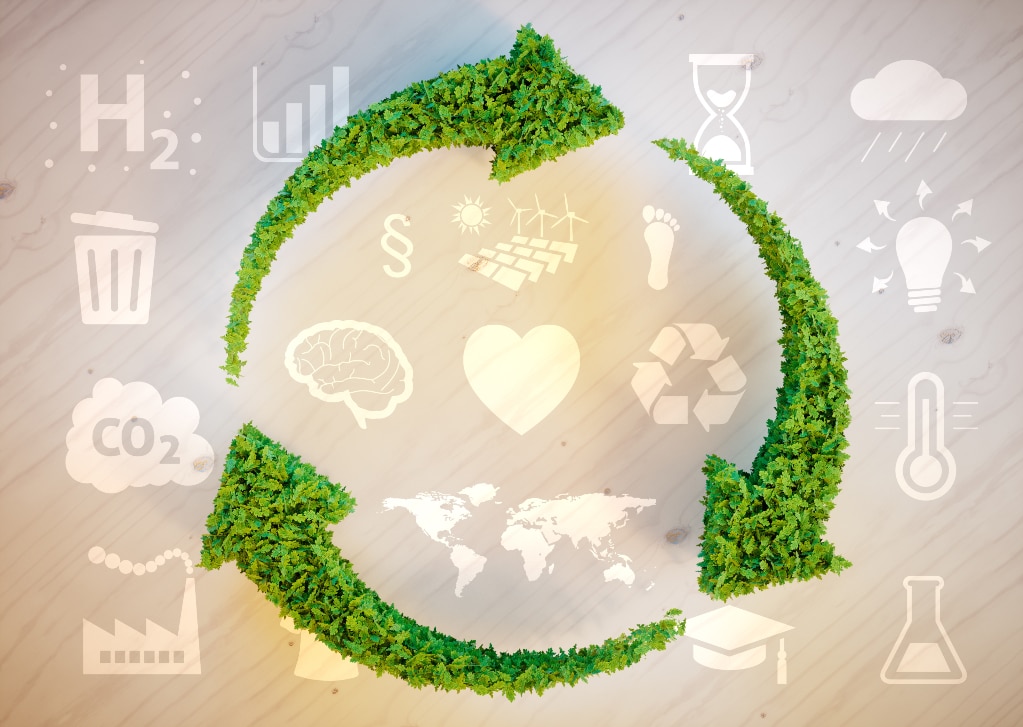Industry 4.0 technologies and sustainable manufacturing
Sustainable manufacturing is considered to be the development of manufactured products using processes with a comprehensive vision of environmental impact and helping in the safety of employees and consumers. Sustainable manufacturing focuses on the entire life cycle of the product, from its manufacturing process to the end of its useful life, after which remanufacturing and recycling appear.
The Triple Bottom Line
Sustainable manufacturing is seen from various dimensions according to its purpose and application, and of these the environment, society and the economy are considered as the three pillars of sustainable development, known as Triple Bottom Line (TBL, for its acronym in English).
The main objective of sustainability is to design and develop manufacturing processes and products, in which there is the least possible impact on the environment and the highest percentage of product recyclability is achieved. Although technological advances allow the development of processes and products, to achieve sustainable development, digital technologies must converge with sustainability. Therefore, manufacturers are focusing on this convergence and thus obtain greater benefits from Industry 4.0 through sustainable manufacturing.
Today, industry experts and researchers are using Industry 4.0 technologies to address the challenges and issues related to the Triple Bottom Line of sustainable manufacturing. For example, environmental challenges such as climate change, resource depletion, and environmental protection are going to be addressed with Industry 4.0 technologies. This brings a new perspective to Industry 4.0, which traditionally focused on digitizing operations and making profits. However, for this to take place, there has to be coherence and convergence of Industry 4.0 technologies.
The transformation of a manufacturing unit into a smart factory requires both horizontal and vertical integration, in which all production areas and distributors and customers are integrated. Seamless integration, provided by Industry 4.0 technologies and information and communication technology platforms, increases the transparency of production processes and supply chain activities, helping to optimize all energy and the resources.
These connected operations produce large amounts of data with respect to all aspects of manufacturing. When all that data is transformed into useful information, it plays a key role in developing strategies from environmental, social and economic perspectives.
Environment
Regarding the environmental dimension of sustainable manufacturing, Industry 4.0 helps reduce waste generation through its optimized manufacturing process and effective recycling and remanufacturing initiatives. For example, the transparency in any operation or manufacturing process is significantly increased by incorporating different types of sensors. These sensors also provide valuable information including behavior, use, error models, performance indicators, emissions, performance under stress, etc., of the product throughout its life cycle.
All this information is used to develop better products and processes using various simulation systems, to mitigate the negative effects on the environment, without harming its competitiveness. These integrated systems also help monitor and manage losses incurred during the product life cycle, both in its manufacturing and in-use stages. Therefore, with full transparency, manufacturers can design new products that are both competitive and environmentally friendly, achieving sustainability.

Economy
From an economic point of view, Industry 4.0 facilitated by IIoT, Artificial Intelligence, machine learning, and data analytics, allows the development of teams at much lower costs through the efficient use of energy and resources. Manufacturers are continually exploring ways to reduce their operating costs involved in manufacturing activities. However, challenges such as waste generation, decreased productivity and increased energy consumption always delay the strategies developed by manufacturers to reduce costs.
With the proper implementation of Industry 4.0 technologies, manufacturers can see both optimized and non-optimized processes in their value chain. These solutions allow manufacturers to adjust the appropriate size of their facilities, workforce, resources and provide a vision of the gaps that the process has and that can be optimized, reducing the operating costs involved in manufacturing and increasing their productivity. . In addition, strategies such as the use of new and cleaner technologies for manufacturing and the use of 3D printing also help manufacturers to reduce the generation of waste.
Society
Regarding the social dimension of sustainable manufacturing, Industry 4.0 helps to develop better products, which in turn benefits society as a whole. Many better jobs are expected to be created, where the overall skill set of the workforce will improve substantially. Increasingly, some manufacturers will provide incentives to consumers who are willing to return their products at the end of their useful life to assist in recycling and remanufacturing activities.
Industry 4.0 technologies are expected to play an important role in driving sustainability in industrial manufacturing. However, it is still too early to fully align technologies with sustainable development goals. For this to happen, manufacturers must transform their factory into a smart factory with full horizontal and vertical integration.
Furthermore, according to the World Economic Forum, around 75% of IIoT projects are small or medium-sized, focusing primarily on energy efficiency, productivity, competitiveness or cost reduction and not on sustainable manufacturing goals. Anyway, technology allows exponential leaps to take place at any time, to which must be added a growing awareness on the part of manufacturers to embrace the benefits of Industry 4.0 to transform into a smart factory aligned with sustainable goals.









